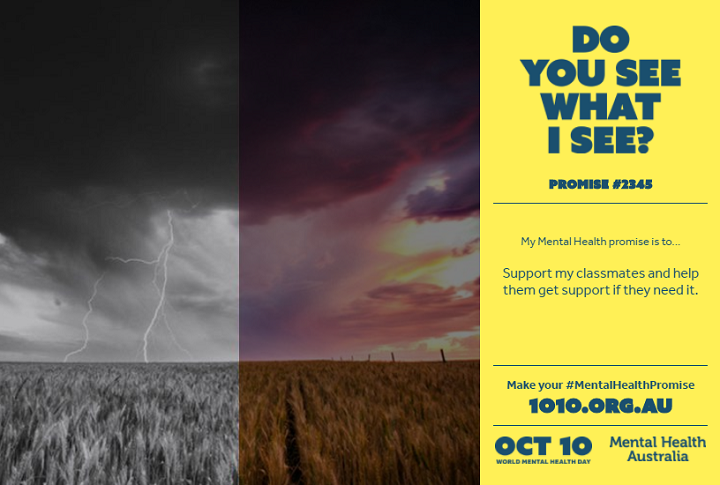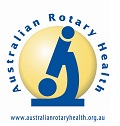
 |
 |
 |
 |
Speaking frankly... 
The little house that highlights a much bigger problem
If a picture paints a thousand words, then let me try and paint you a picture…
A picture of a little weatherboard house, surrounded by state-of-the-art medical facilities on a huge hospital campus. A little house, highlighting a much bigger problem in relation to service delivery and stigma.
I recently visited a small alcohol and drug treatment facility, in one of these little houses.
A small, old, weatherboard house with a crowded dirt carpark out the front. Oversubscribed on a daily basis, and with a substantial long-term waiting list.
Inside, its expert staff are quite modestly paid and despite bringing years of experience to the table, are frequently funded via short term contracts with government.
The little house was recently ‘developed’ to provide a large common room sufficient for all, and some residents had begun to create a little ‘kitchen garden’ for the little house.
Building a community, despite their surrounds – a healthcare precinct of professionalism with facilities that tower over the little house on three sides.
The surrounding modern, multi-story buildings house operating theatres, medical research laboratories, private consulting rooms, supporting pathology and imaging services, outpatient clinics, rehabilitation clinics, administrative offices, cafes, multi-story car parks and more.
If an ambulance brings you to the Emergency Department you will most likely receive world class medical care, regardless of your wealth of social standing. But not if you turn up to the little house.
If you work in mental health and or alcohol and drugs in many parts of Australia, you will recognise this kind of facility, or little house… and the disparity between the two.
Disparity which like it or not says to the users, ‘you are not as important as the other people using this precinct’. Disparity which reinforces stigma.
I was recently reappointed to the Australian National Alcohol and Drug Advisory Committee, and hope to use the opportunity to help overcome some of this disparity, and the barriers that seem to exist for alcohol and drug services and mental health services.
In my local community in Canberra, I am also the Board President of an alcohol and drug treatment agency, Directions ACT, where we strive to provide ‘joined up’ services regardless of the barriers.
Mental health services, like alcohol and drug services, are too often the last in line for funding. Our operating budgets are frequently set on an annual basis and we celebrate wildly if we secure a three-year contract for a program.
If we don’t spend all our funds in a year, governments frequently take the money back.
We often work in premises that are donated and repurposed – leftovers from other, bigger parts of the system. And we never get a mention when governments talk about vast investments in ‘infrastructure renewal’.
Our staff, who are frequently modestly paid, are often asked to ‘suspend disbelief’ and keep working through the tremendous uncertainty of contract renewals, endless tendering and re-tendering, and constant program reform.
We are frequently unable to provide the high quality, evidence based care that consumers and carers deserve. Let alone provide the early interventions and preventative activities that would ease the burden on our services, and the community in general.
As we approach Budget 2018, we will continue to advocate for mental health services to be funded as a key priority, rather than an afterthought.
We will continue to advocate for joined up services, rather than fragmented service offerings.
And we will continue to ask governments to get the house in order. Bigger and better houses for the services that too often get hidden away.
Warm regards

Frank Quinlan
Chief Executive Officer
Mental Health Australia 2018-19 pre-Budget Submission
This week we are pleased to publically release and attach our 2018/19 pre-Budget Submission. The submission takes account of the Fifth National Mental Health and Suicide Prevention Plan and provides other key priorities that offer strong economic and social returns on investment.
In the submission we are proposing actions in the following areas:
- Funding for implementation of the Fifth National Mental Health and Suicide Prevention Plan and transparency in the Budget of the funding commitment
- Consumer and carer co-design in all areas of policy, oversight and service design
- Integration of mental health services for older Australians with residential and home aged care services
- First class mental health and emotional wellbeing services for Indigenous Australians
- Mentally healthy workplaces, through targeted investments and incentives to change workplace practice
- Peer workforce for employment opportunities and better outcomes for people recovering from mental ill health
- Assertive outreach and suicide prevention for people who have sought hospital treatment for injury relating to a suicide attempt
- Primary care data management and reporting to better understand mental health outcomes managed in the primary care setting
- Additional funding for Mental Health Australia to better assist Government to implement its reform and make change work
Click here to read the full Mental Health Australia pre-Budget submission.
Submission to the Joint Standing Committee on the National Disability Insurance Scheme on Market Readiness
The Parliamentary Joint Standing Committee on the National Disability Insurance Scheme called for submissions in relation to an inquiry into NDIS Market Readiness. Our submission (lodged on 2 March 2018) discusses the impact of both organisational transition requirements and NDIS pricing on organisational viability and workforce structure and quality and safeguarding. The submission recommends:
- Government should consider a programme to support the providers of psychosocial services to re-orient their business practices and service delivery models to ensure a viable market that provides choice to NDIS participants.
- Support coordination for NDIS participants with psychosocial disability should be provided by service providers and not be a support that is contracted by the National Disability Insurance Agency (NDIA) to Local Area Coordinators.
- The NDIA should investigate specific funding arrangements for providers to work with people before they become and NDIS participant.
- The NDIS Price Guide should be amended to include a specific support item for psychosocial support.
- That the NDIA considers a range of pricing arrangements which move beyond hourly pricing and provide greater incentive for providers to focus on participant outcomes.
- The NDIA should fund and assist the development of a whole of NDIS industry-plan led by the non-government sector. The plan should include specific actions relating to development of the psychosocial disability workforce and take account of broader mental health workforce strategies, maximising the use of the peer workforce.
- The NDIA should regularly publish an NDIS National Psychosocial Disability Market Position Statement incorporating workforce numbers and qualification levels.
The submission also discusses the experience of NDIS participants with psychosocial disability in preparing to engage with the new market. It notes that Mental Health Australia is currently undertaking a consultation process in relation to the experience of NDIS participants with the Scheme and will report to the NDIA on this issue at the end of April 2018.
The full submission is available on the Mental Health Australia website.
NDIS psychosocial participant pathway consultations
Mental Health Australia is currently working with the National Disability Insurance Agency (NDIA) to consult with mental health consumers, carers and service providers on the design of a NDIS pathway tailored for people with psychosocial disability. The pathway refers to the experience participants and providers have from their first interaction to their ongoing engagement with the NDIS.
Mental Health Australia has held workshops with mental health consumers, carers and service providers in Sydney, Melbourne and Perth. We have also held a teleconference with health professionals this week on the issue. Participants in all consultations provided valuable feedback, which Mental Health Australia is working to consolidate into recommendations for the NDIA about how to design a NDIS psychosocial pathway. We are also planning one more workshop for mental health consumers, carers and service providers to be held in Townsville in April. Stay tuned to this CEO update to learn more about this workshop as the details are finalised.
Positions Vacant - Join the team at Mental Health Australia
There has never been a better time to join our team at Mental Health Australia and we are currently recruiting for an Executive Officer to the NMHCCF and National Register of Mental Health Consumer and Carer Representatives, and Communications and Membership Officer. Find out more at the link below, with both positions closing this week.

Next WeekThe Mental Health Australia office will be closed on Monday for the Canberra Day public holiday. On Tuesday Director of Policy and Projects, Josh Fear will be attending a workshop in Melbourne hosted by the Insurance Council of Australia to discuss the ICA’s new Code of Practice. On Wednesday I will be meeting with the Mentally Healthy Workplace Alliance group. Also on Wednesday Josh Fear will be attending an ACOSS Workshop on Commissioning for Better Outcomes. While on Thursday I’ll stay in Melbourne to join Kylie Wake, Kath Sequoia and Emma Judges from our Consumer & Carer team at the National Mental Health Consumer & Carer Forum meeting. |
Mental Health Australia Member Profiles
Australian Rotary Health is one of the largest independent funders of mental health research within Australia. They also provide funding into a broad range of general health areas, provide scholarships for rural medical and nursing students, as well as Indigenous health students. Australian Rotary Health provides funding into areas of health that do not readily attract funding, and promotes findings to the community. Australian Rotary Health is supported by a number of Rotary Clubs in Australia and have a broad vision to improve the health and wellbeing of all Australians.
Website - https://australianrotaryhealth.org.au/ Facebook - https://www.facebook.com/AustralianRotaryHealth Twitter - https://twitter.com/ausrotaryhealth Instagram - https://www.instagram.com/AusRotaryHealth/

Australian Red Cross is building a better society based on people helping people.
They save lives and support people before and after disasters strike. They work to alleviate suffering during wars and conflict and promote the laws of war. And they work to assist the most vulnerable community members – no matter their circumstances.
They work with politicians, policy-makers, organisations and the public to improve the situation of the most vulnerable people in Australia and around the world.
They advocate based on direct experience and evidence, and empower people to speak out and take action to improve their lives.
They will always focus on the needs and perspectives of vulnerable people, in their areas of expertise.
They are bound their Fundamental Principles of Humanity, Impartiality, Neutrality, Independence, Voluntary service, Unity and Universality.
Website - www.redcross.org.au Facebook - www.facebook.com/AustralianRedCross Twitter - www.twitter.com/RedCrossAU
News
Setting up a research fund for mental health: Greg Hunt
Housing is a human right, right?
The team at Wellways are currently running a petition in search of 20,000 signatures to highlight the demand for more affordable housing investment and support from our government for Australians experiencing mental illness and on the brink of homelessness. To find out more or sign the petition click on the link below.

Managing Mental Health in the Australian Federal Police

Reminders
Health in Difference 10 in Sydney from 11-13 April 2018
Health in Difference is Australia’s premier conference on the health and wellbeing of lesbian, gay, bisexual, trans, intersex, queer and sexuality, gender, and bodily diverse people and communities throughout Australia.
This conference brings together community members, community organisations large and small, health practitioners, researchers, academics, policy makers, advocates, and others who are interested in improving the mental, physical and emotional wellbeing of LGBTI people.
Last Days to Submit for TheMHS Conference 2018 Call for Abstracts

Sane Australia’s Topic Tuesday - 20 March - Mindfulness
Sane Australia will continue their Topic Tuesday sessions later this month starting on Tuesday 20 March with the topic – How can I be mindful when I have a mindFULL?
NDIA Update from CEO Rob De Luca
Each month the NDIA’s Chief Executive Officer Rob De Luca will provide an update to the sector on the progress of the NDIS rollout, highlights and future areas of focus. The CEO’s first update includes:
- An update on the NDIA’s Corporate Plan and the work aligned to our aspirations.
- Future areas of focus to improve the experience of participants and providers working with the NDIS.
- A video from our recent Provider Forums.
Aged Care Workforce Strategy
Mental Health First Aid Training in March
Geelong and Surf Coast to get a new suicide prevention service

|
CONTACT US
|
 |
